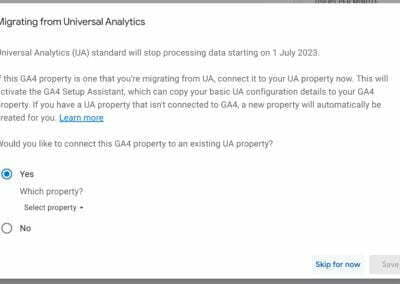Urban Haze is a small business, and like any other business, finances need to be managed.
Some folks take the approach of stuffing receipts into shoe boxes, whilst others like to do some of it themselves, and others like to do all of it themselves.
I fall into that middle category, I like to know what’s going on with the finances of my business, but I don’t want to get wrapped up in every single detail, so I have an accountant check things over and do an annual return for me.
Up to now I’ve been using Intuit’s Quickbooks 2013 Desktop software to manage my business’s finances.
This is a really great tool, it lets me input expenses and payments as well as create quotes and invoices.
It tells me whom I owe, who owes me and how old these debts and invoices are.
At the end of my financial year, it works its magic and provides the right information to go to my accountants and HMRC
If fact, if your company is VAT registered it’ll even submit a VAT return for you.
You can also set up things like recurring transactions, for bills (such as a subscription to a service) as well as recurring invoices to your customers.
In fact the only real problem with QuickBooks Desktop is that it is limited to a Desktop machine:
- You need to make sure you do a backup in case that desktop ever fails
- You need to launch the software to run stuff including things like recurring reminders
- You need to be sat at your desktop machine to use the software
- It doesn’t integrate very well with other important business information that you might have online
There’s another company called Xero who’s been offering an online accounting software service for a while that makes a good alternative, so Quickbooks have followed suit with QuickBooks Online
These online services are something that you pay for monthly. They both offer many of the features of QuickBooks Desktop and each has other several advantages:
- Your financial data is stored on the Internet, so you don’t need to back it up
- Your recurring reminders and invoices run automatically (without you needed to leave your PC switched on and running Quickbooks)
- You can access your business financial data anywhere you have an Internet connection
- You can integrate your business financial data with other online software
There’s even an iPhone and Android App, so you can do some key activities right from your smart phone.
It’s not a clear cut and dry decision about which one is best as there are some core difference between each package:
Here are some of the key differences I’ve found that were important for my own circumstances:
Intuit QuickBooks | Xero | ||||||
| Desktop Pro 2014 | Online Quick Start | Online Essentials | Online Plus | Starter | Standard | ||
| One Off Cost | £289 + VAT from Intuit (Less If you shop around and buy from somewhere like Amazon) | Monthly Subscription only | |||||
| Monthly Cost | £22 + VAT | £9 + VAT | £19 + VAT | £29 + VAT | £9 + VAT | £20 + VAT | |
| Backup | Must Provide Your Own | Done Automatically | |||||
| Number of Users | 1 | 1 | 3 | 5 | Unlimited | ||
| Payroll | Optional Extra | Included | |||||
| Scheduled Invoices/Bills | Yes | No | Yes | Yes | Yes | ||
| Company Overview/Snapshot | Yes | No | Yes | Yes | Yes | ||
| Pass Expenses On To Customers | Yes | No | No | Yes | Yes | ||
| Mobile App | No | Yes | Yes | ||||
| UK Bank Feeds | NatWest Personal & Business, Santander Business, Barclays Personal & Credit Card, PayPal, Lloyds TSB, RBoS Personal & Business, Halifax, Coop and others | HSBC (only) | |||||
| Bank Transactions Reconciled | Unlimited | 20/Month | Unlimited | ||||
| Internet Access & Mobile App | No | Yes | |||||
| Manage Supplier Data on Mobile | No | Yes | |||||
| Track & Photograph Receipts on Mobile | No | Yes | |||||
| Integrate with QuoteRoller | Yes | Only currently in US | Yes | ||||
| Integrate with HighRise | No | Yes | |||||
| Integrate with Insightly | No | ||||||
Security Thoughts
Times have moved on since desktop software and whilst there are security risks everywhere I have to admit that online things are probably less secure than those on your desktop PC in some ways.
I’m sure there will be fears about moving any information related to money onto the Internet, but both Intuit and Xero will take security of the Online software very seriously, but at the end of the day, access to your business’s financial data is only a username and password away, whilst desktop software is a little bit (and only a little bit!) more secure. And truth be known, you probably have other information such as email and the likes online that is just as secure (if not less) that you take for granted, but for some reason the stigma of anything to do with money being online can be a sticking point for some.
If you can get over that sticking point, then there are benefits to be reaped by moving your business information online, although it does come at a recurring monthly cost.
Migration and Integration
It very much depends what you want to do with your Accounting as to which solution is best for you.
If you’re already using QuickBooks desktop, then you can move to either QuickBooks online or Xero using Ledgerscope’s MoveMyBooks service
As to whether Xero or QuickBooks is better for you, the major difference I’ve found here is how these services integrate with other business tools that you may be using.
In my own business, QuoteRoller, Insightly and HighRise were the tools I wanted to integrate with and that wasn’t as straightforwards as I’d hoped.
I’m sure that all of this software will advance and improve integrations in the future, but we’re just not there yet and I’ve felt a bit disheartened by not being able to get everything working smoothly, although some third party tools like Zapier would help (at an additional cost)
[Update June 2014 – QuoteRoller now integrates with Quickbooks]
One other disappointment was the banking Integration. QuickBooks looks pretty good at first – but only works with the Coop Personal bank, not their Business banking (this seems a bit daft since QuickBooks is a business tool) – which is a pretty huge setback for me, as that was an important feature to make moving things online worthwhile. Having said that Xero banking integration seems to be even less with only HSBC supported, and I’m sure that the Co-op is at least partially responsible for their lack of software integration into their business banking and maybe banking is something else for me to consider upgrading!
[Update June 2014 – Co-op Business banking is now also supported with QuickBooks]
Conclusion
I’ve given the desktop software a reasonably good run now – it has done me well, but still left me wanting more.
QuickBooks Desktop 2013 has been my accounting workhorse for a couple of years and I’ve not felt the urge to upgrade to the 2014 version, so it’s reasonable to say that investment has been worthwhile for me.
The online services of QuickBooks and Xero promise a lot more than the Desktop Software, but in reality for my own case, I’m not sure they deliver quite as much as I’d envisaged.
However, there is room for automatic improvement and included updates with the online software (whilst the desktop software will remain the same – unless I upgrade), so I think it’d be a good idea to re-address things in a year’s time and see how much further the online software has come and if it’s any closer to reaching my expectations.
QuickBooks desktop can be bought from Intuit directly or from other suppliers such as Amazon
You can try QuickBooks online and Xero for free for a limited period
If you’d like some impartial advice about discussing what business accounting software is right for your own business and your particular circumstances, then why not give Urban Haze a call on 0800 612 2845 or use the contact form to get in touch



